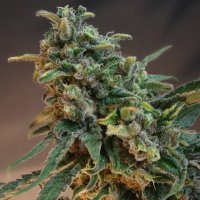A Minnesota company believes a new strain of cannabis plant it has developed has the highest levels of the cannabinoid cannabidiol (CBD) in the world.
Marijuana has hundreds of cannabinoids, but CBD is one of a comparative handful pursued for medicinal applications; particularly in treating seizures and inflammations.
Unlike THC (tetrahydrocannabinol), CBD does not produce psychotropic effects.
Named “Katelyn Faith” after an eight year old girl whose parents fought for access to medicinal cannabis to treat her seizures*, the strain has been verified by an independent third-party laboratory to have a CBD-to-THC ratio of 34-to-1. This level is much higher than the 20-to-1 ratio for “Charlotte’s Web,” a popular strain with particularly high-CBD that is also used in medicines.
“This is likely the most CBD-rich strain in the world, though it’s difficult to know for sure, because testing is not as rigorous and transparent as it should be,” said Kyle Kingsley, M.D., Chief Executive Officer of Vireo Health; parent company of Minnesota Medical Solutions (MinnMed).
The companies believe “Katelyn Faith” could lead to cheaper marijuana-based medicines as less plant material needs to be grown and processed to extract the valuable compound.
The extraction method most often used for high quality cannabidiol involves carbon dioxide subjected to high pressure and very low temperatures; a complicated process requiring very expensive equipment.
A 1 gram tube of 43% cannabidiol extracted using supercritical CO2 currently costs around USD $70 – $85.
Vireo Health hopes cannabidiol from Katelyn Faith will be widely available in Minnesota within 6-8 months.
Recently, new evidence emerged from US trials that CBD can be effective in treating epilepsy in children.
Closer to home, a partnership between New South Wales and Tasmania will incorporate trials of medications containing CBD in treating children with severe drug-resistant epilepsy.
*Unfortunately, Katelyn Faith Pauling passed away from complications associated with Battens Disease on March 20, 2015; just a few months before Minnesota’s medical cannabis law came into force. Under the qualifying conditions for the state’s program, Katelyn would have had access to CBD.
On a related note, Minnesota will soon also add intractable pain as a qualifying condition for state’s medical cannabis program.


